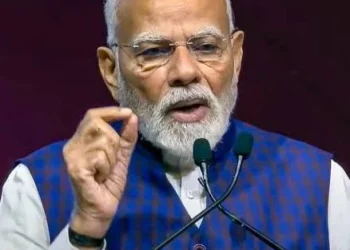With an executive order to leave the WHO, the U.S. may lose access to critical global health expertise and disrupt funding for life-saving programs. Are we prepared for the consequences?
BY Navin Upadhyay
On January 21, 2025, President Donald Trump signed an executive order initiating the withdrawal of the United States from the World Health Organization (WHO). This decision has sparked significant debate about its implications for global health, U.S. public health systems, and international diplomacy. The WHO, a specialized agency of the United Nations, plays a central role in coordinating global health responses and tackling issues such as pandemics, infectious diseases, and public health emergencies. The U.S., as a leading financial and technical contributor to the WHO, has historically had substantial influence on its operations. The withdrawal marks a pivotal shift in the country’s approach to international health collaboration.
Implications for Global Health
The U.S. withdrawal is likely to have far-reaching consequences for global health efforts.
- Funding Shortfall: The United States contributes approximately 18% of the WHO’s total budget. Without this funding, the WHO may struggle to maintain critical health programs, especially in low- and middle-income countries. This could undermine efforts to combat diseases like tuberculosis, malaria, and HIV/AIDS, as well as responses to future pandemics.
- Program Disruptions: The WHO’s ability to provide technical assistance, conduct disease surveillance, and respond rapidly to health crises may be significantly impaired. Health systems in vulnerable regions could face heightened risks due to reduced support from the global health body.
Unless China steps in, we’re witnessing the end of #WHO as we know it.. US withdrawal leaves it in a huge budgetary hole pic.twitter.com/2ixhzhSCIy
— KGitonga (@Itonga10) January 21, 2025
Michelle Obama aside;President Trump signed an executive order of withdrawing the USA from the WHO. The American policy will also remain male and female. Drugs like ARVs will now start working and treat patients. Bill Gates has been sorted now. pic.twitter.com/h5xFnkapZl
— MEHMET VEFA DAG (@AFRICANDEMOC) January 21, 2025
Impact on U.S. Public Health
The withdrawal also poses challenges for the U.S. domestically:
- Loss of Access to Expertise: The WHO serves as a repository of global health data, research, and best practices. Without membership, the U.S. may lose access to vital information and technical expertise that inform its own health policies and emergency responses.
- Vaccine Development and Distribution: The U.S. has historically collaborated with the WHO on vaccine research and distribution initiatives. Withdrawal may hinder such partnerships, potentially delaying access to vaccines and other essential medical resources for A














